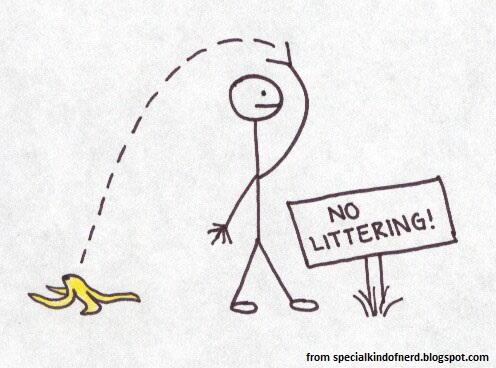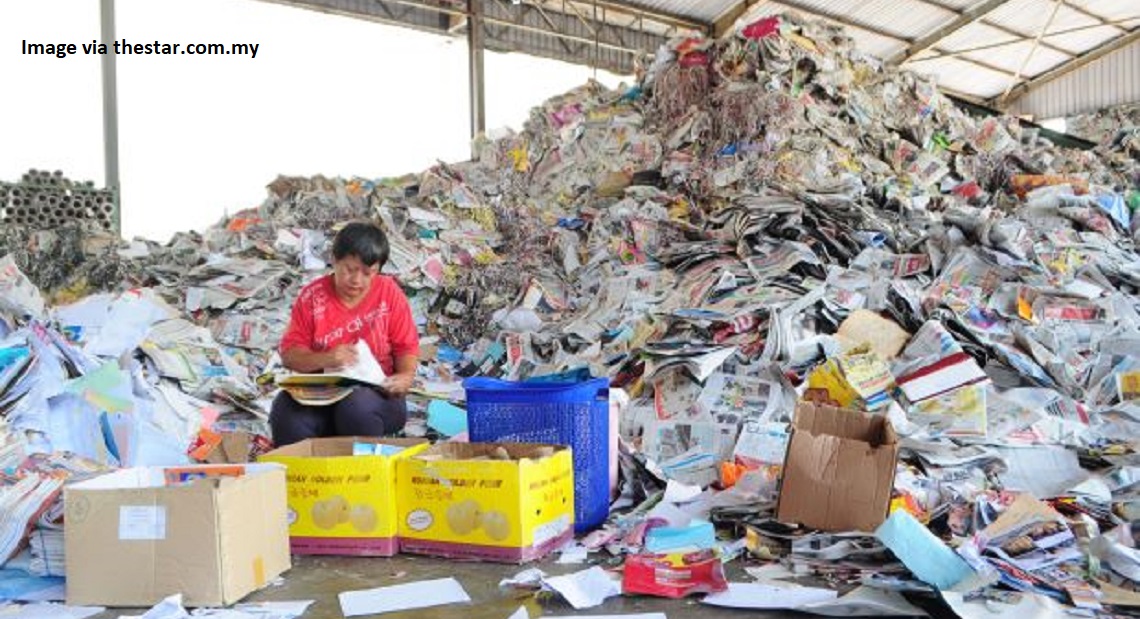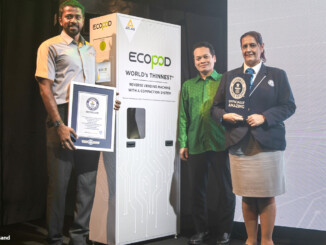It’s been a year since Malaysia started waste separation. Here’s how much we’ve progressed
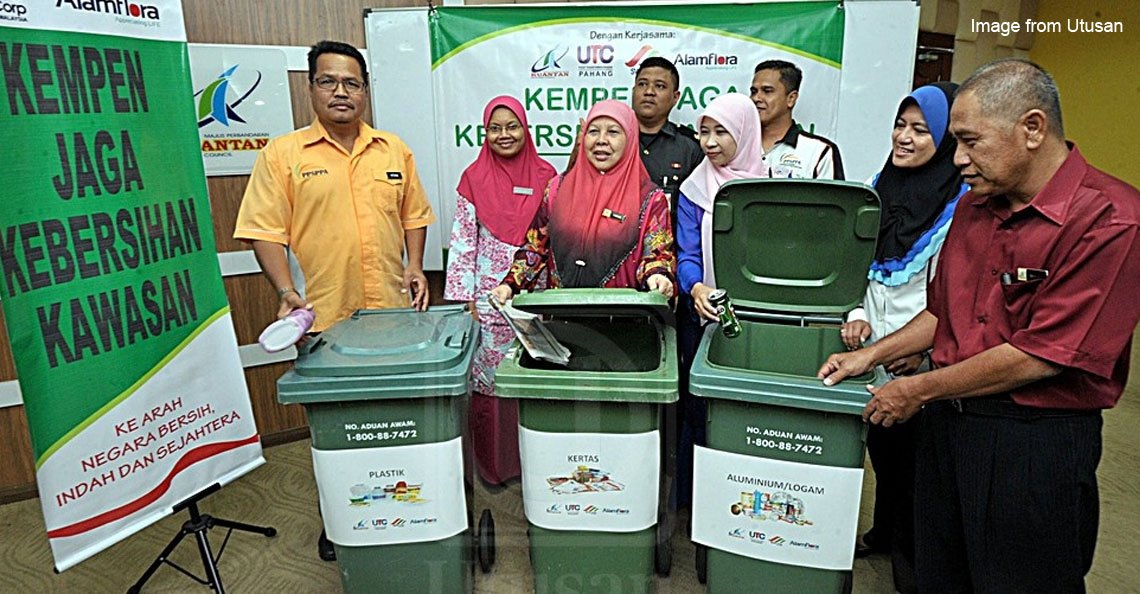
- 2.3KShares
- Facebook2.3K
- Twitter3
- LinkedIn6
- Email14
- WhatsApp18
It has been ONE YEAR since Malaysia started enforcing waste separation on 1 June 2016. Well, not the whole of Malaysia la…only KL, Putrajaya, Pahang, Johor, Melaka, Negri Sembilan, Perlis and Kedah implemented it. Technically, the Government started the practice on 1 September 2015 in stages, but enforcement only really started on 1 June. Penang joined later in June 2016, and enforcement begins 1 June this year.
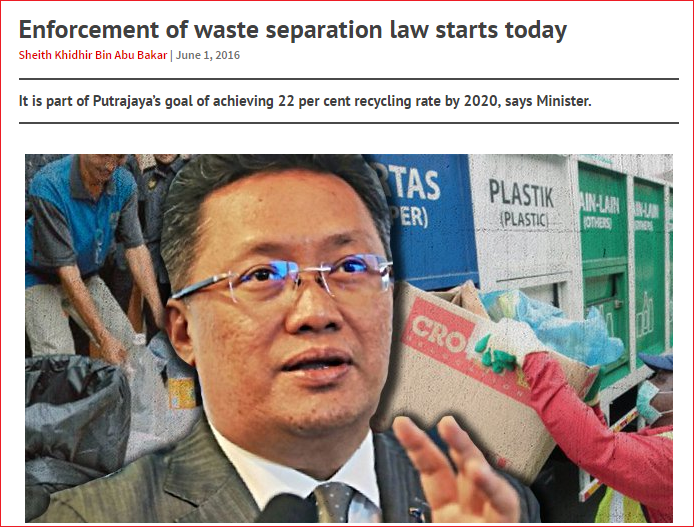
WOW it’s been a year already?! It seems like only yesterday we grumblingly sorted out paper and plastic into separate trash bags to dump, coz you know, first world problems, but it is for the good of the environment, so must do la. 😀
So, the Government is aiming for a recycling rate of 22% by 2020. It’s a good ruling no doubt, but how are we doing so far? Has the it been effective since it started? What are the results?
We managed to cut down 237,000 tonnes of solid waste in four months
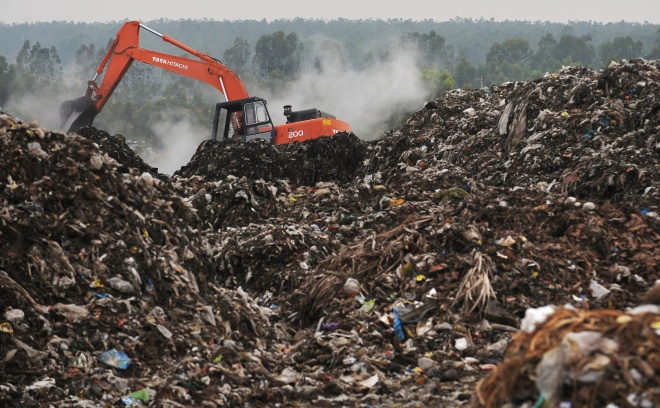
In October 2016, the Urban Wellbeing, Housing and Local Government Ministry announced that the amount of solid waste collected in the last four months (since 1 June) was 1,558,370 tonnes, compared to 1,795,548 tonnes usually collected in the same number of months before the ruling was enforced. Which means those states managed to cut down on 237,178 tonnes of solid waste (or 13.1%) in that duration – or an average of 59,294 tonnes per month.
Translate that to cash, the Government saved RM7,119,900 on solid waste disposal, as the estimate cost to manage landfills is RM30 per tonne, said Deputy Minister Datuk Halimah Mohamed Sadique. The Ministry believes that they are on track to achieving a 22% recycling rate.
“The enforcement has managed to gather 1,724 tonnes of recycled materials.” – Datuk Halimah Mohamed Sadique, Deputy Urban Wellbeing, Housing and Local Government Minister, Malay Mail Online
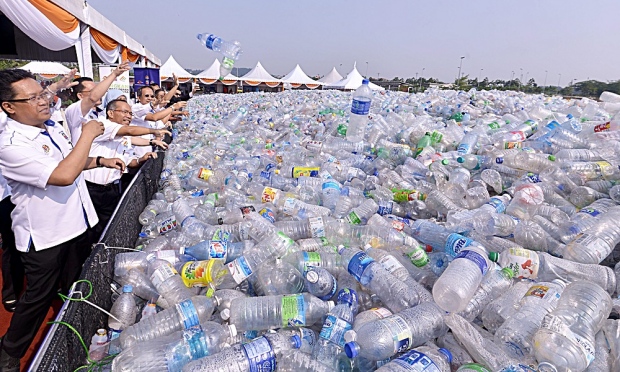
So far, this has been the only report they’ve made on the results of waste separation. If they have any new updates, we’ll update the article too.
But for some residents, it seems that the waste separation ruling is more like a waste of effort because…
Residents complain that garbage collectors mix everything in the truck
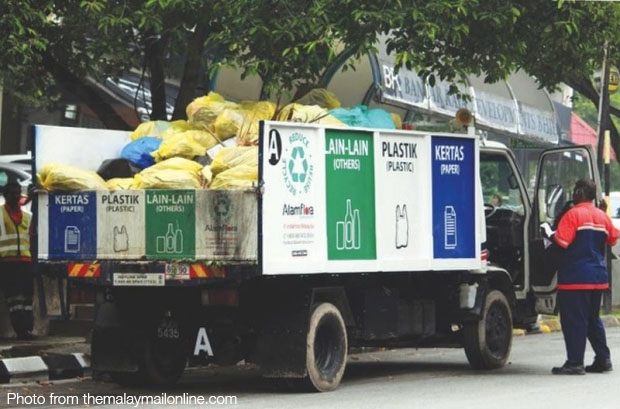
When waste separation was implemented, a lot of Malaysians were on board with the idea of going green. After meticulously separating your trash – plastic one bag, cans one bag, paper one bag, some colour coordinated summore – you would expect the garbage collectors to properly separate it too. It’s like passing on the sacred torch of social responsibility to save our planet. So we can understand why the residents of Taman Melawati were upset when they saw garbage collectors throw everything jumbled up inside the dumptruck.
“We are more than ready to separate our trash but the council trucks do not come with separate compartments. So all the rubbish which residents have separated is mixed up in the lorry.” – Razman Hakimi Abdullah, Taman Melawati Crime Prevention and Safety Chairman, The Star
To be fair, we have seen trucks with separate compartments. We’re all for unity in our country but not when it comes to our trash yo 😛 Do you guys notice if this problem happens in your neighbourhood too? Tell us in the comments.
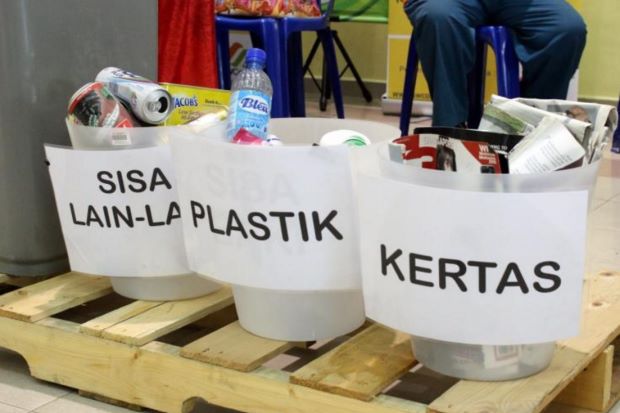
BUUUT there could be two possible explanations for this happening…
Firstly, the Ministry actually separates (hurhur) the waste collection days. It’s called the 2+1 collection system, whereby they collect residual waste (kitchen waste, food, and contaminated junk) TWICE a week, while they only collect recyclables and bulky waste ONCE a week.
You notice how they sometimes don’t collect everything? Sometimes they leave a few bags behind? Possibly when you see your neighbourhood garbage collector throwing what looks like ‘everything’ into the truck, he could just be throwing your plastic waste into a truck full of plastic waste.
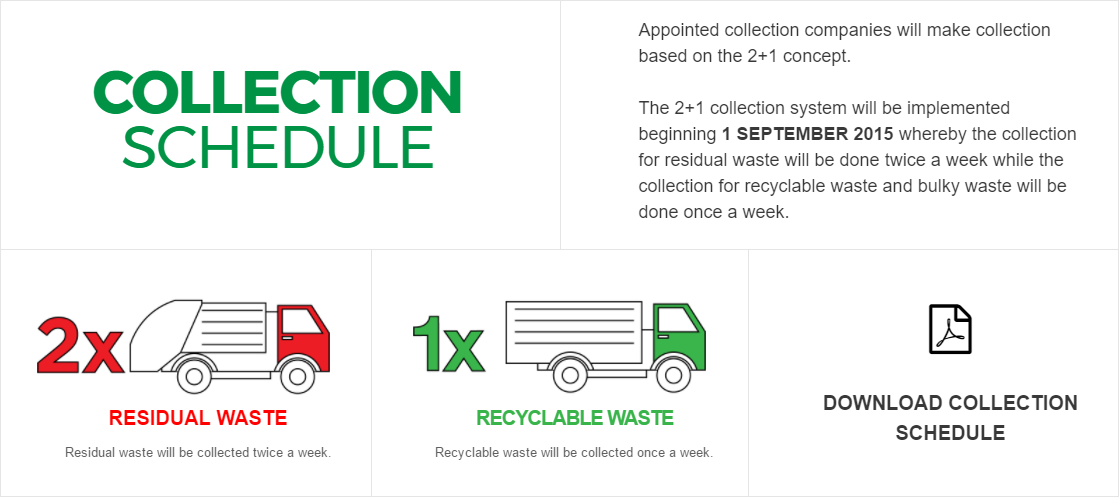
Secondly, some people commented that garbage collectors take the recyclables for themselves and later sell it, which they were ok with, since it could earn these guys a bit of extra money. Hey, if it still gets recycled at the end of the day, mission accomplished right?
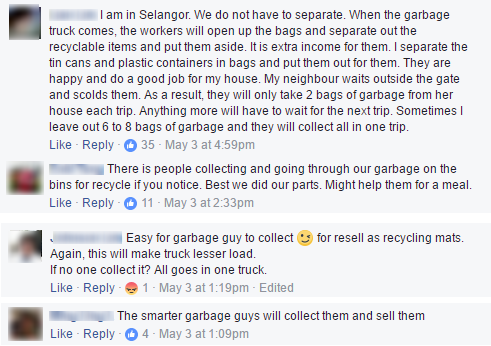
But if you don’t separate your waste, can kena fine though
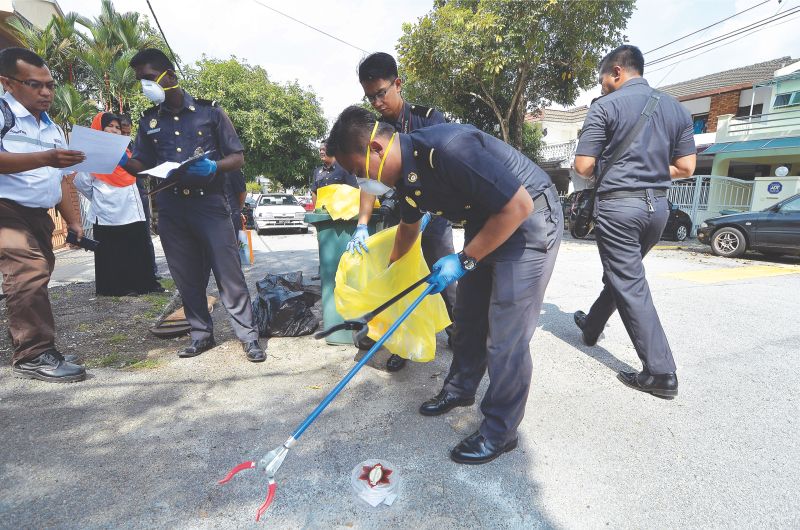
Regardless of how you feel towards the rule, you still have to separate your trash according to law. If you don’t, you could kena FINED RM50 for the first offence, RM100 for the second, and RM500 for the third, for landed property owners. For non-landed, it’s RM100 for the first offence, RM200 for the second and RM500 for the third, according to the Solid Waste and Public Cleansing Management Act 2007 (Act 672).
The worst possible scenario is you could kena a maximum fine of RM1,000 and possible court action. This is for residents living in the six states and two Federal Territories. For those in Penang, the fine is RM250. The authorities said that to enforce this, they would conduct spot checks:
“The council will conduct weekly spot checks, codenamed Ops Kawal Selia Pengasingan Sisa, in commercial and residential areas, where bins will be checked for discarded recyclable items.” – Mubarak Junus, Penang Island City Council (MBPP) Urban Services Department Director, Malay Mail Online
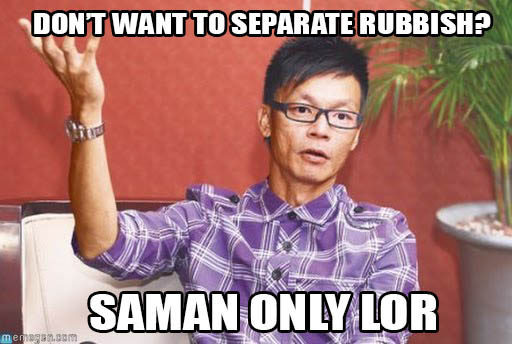
On the first day of enforcement (1 June 2016), KL officers also went around spot checking, but they went easy on people first, by issuing notices. In Kedah too, officers spot checked 2,700 premises.
Still, if we have the heart to be socially and environmentally responsible, there are other ways…
You could send your stuff to registered recycling companies & NGOs
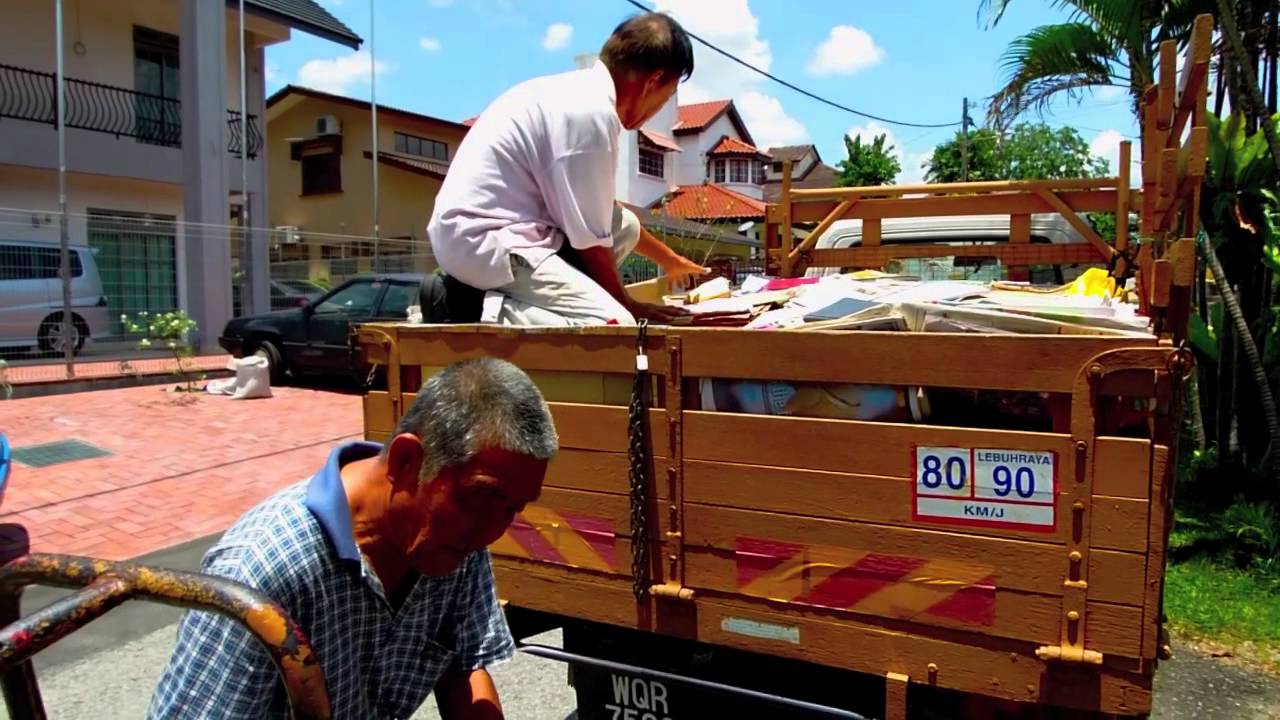
On the bright side, recycling companies and NGOs existed long before the Government implemented a waste separation rule. Just as people had sent their recyclables to them pre-ruling, they could still continue to do so if they are not confident with what happens to the garbage collected by council workers. List here and here.
In fact, if you have no time to drop off your recyclables, you could ask the guy who comes and cuts your grass if he would like to take some of your recyclables. Like the garbage collectors, they might be able to sell these items for a bit of money. Besides, the paper lama guy goes to your house, so it’s barely a hassle to recycle paper.
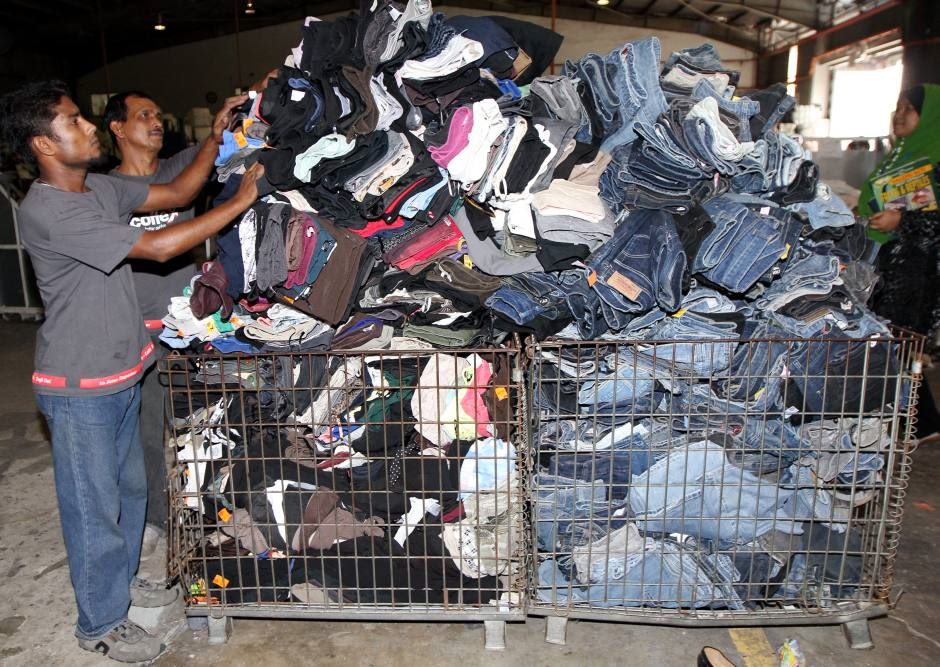
On this issue, Malaysian Environmental NGOs (Mengo) Chairman Yasmin Rasyid urged the Government to be transparent about recycling management. The lack of continuity in policies and campaigns frustrated the community most, so, many people would rather bring their recyclables to NGOs.
“We hope the country is more transparent in quantifying the recyclables in order to be really sustainable. We have seen the rise and fall of many recycling companies in the past, we hope the Government can also legalise the small-time collectors if they are here to make a decent living.” – Yasmin Rasyid, Chair of Mengo, The Star
It’s reassuring to see that the small efforts of each household making a big difference in the way we manage rubbish. So we all do our part a bit more in cutting down waste, who knows what great impact we can have on Malaysia in the long run! Hopefully we will implement this nationwide one day.
- 2.3KShares
- Facebook2.3K
- Twitter3
- LinkedIn6
- Email14
- WhatsApp18

